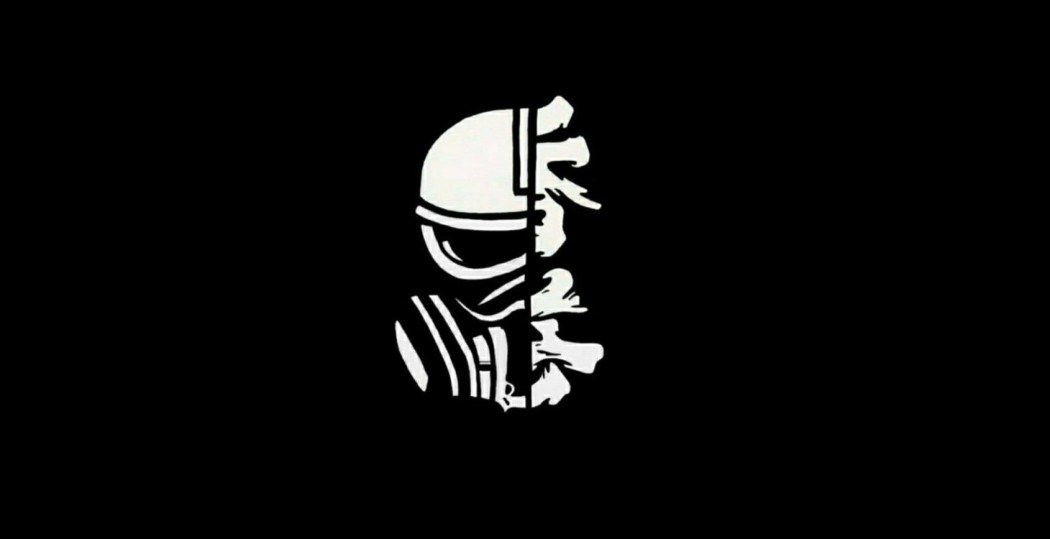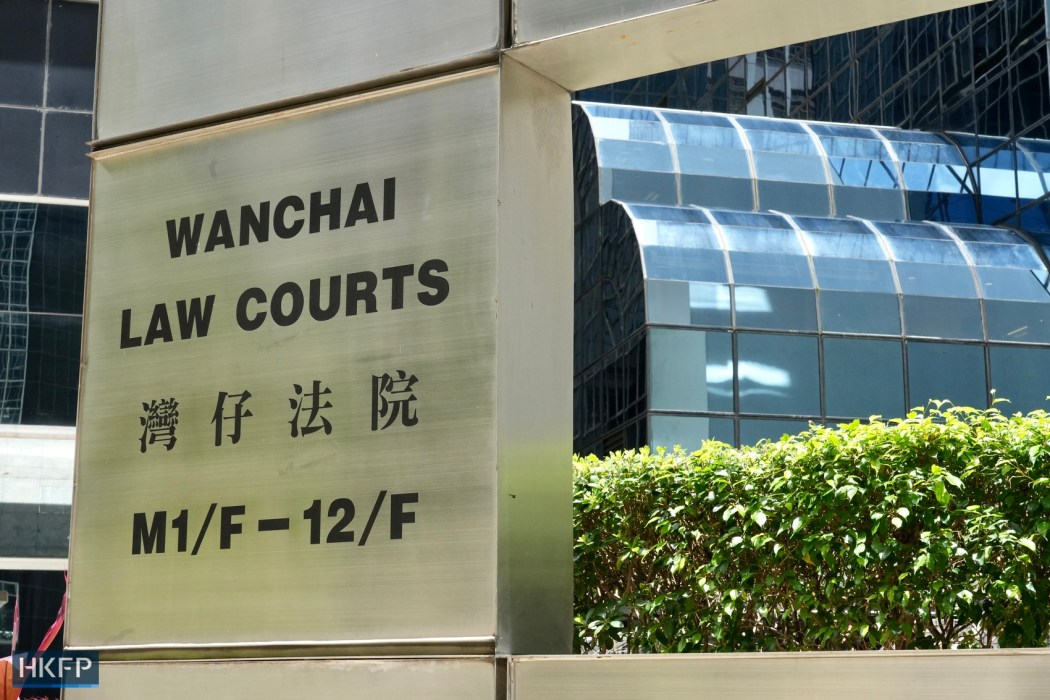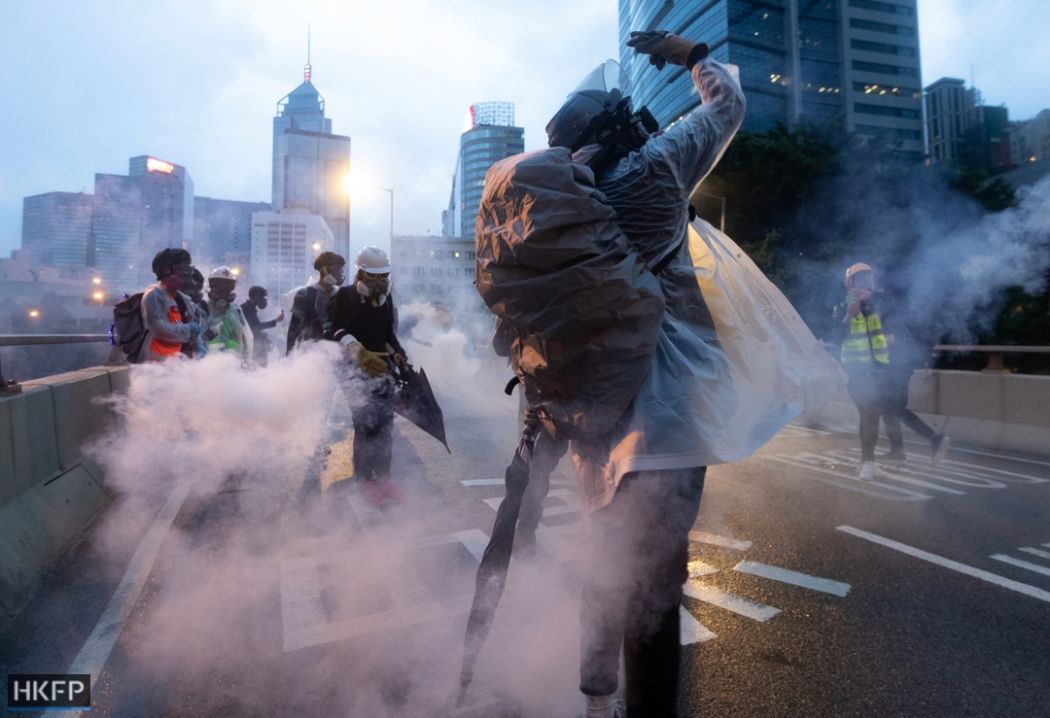Five teenaged members of a self-proclaimed “revolutionary” political group have been sentenced to a training centre for conspiring to incite subversion over calls for an “armed uprising.” Four of them became the first minors to be sentenced under the Beijing-imposed national security law.
Yuen Ka-him, 17, Wan Chung-wai, 16, Leung Yung-wan, 17, Tseung Chau Ching-yu, 17, and Kwok Man-hei, 19, appeared before District Judge Kwok Wai-kin for sentencing on Saturday. The five, who were members of the group Returning Valiant, had earlier pleaded guilty to the charge.

Judge Kwok sentenced the defendants to time in a training centre, an alternative to imprisonment for those aged below 21 where the period of detention ranges from six months to three years. The youngest was aged just 15 at the time of arrest.
An additional two defendants in the case – Chris Chan, 26, and Choi Wing-kit, 21 – will be sentenced in November.
Yuen was also found guilty of possessing telecommunication devices without a license, for which he was also sentenced to a training centre.
‘Serious’ offence
When giving his reasons for sentencing, Kwok said the offences committed by all seven defendants were of “serious nature” under the Beijing-imposed national security law. He said Returning Valiant had repeatedly spread subversive messages via street booths and online platforms, including promoting “bloodshed revolution” and urging people to “fight without a bottom line.” The group advocated for an “armed uprising,” describing it as “the only way out,” Kwok added.
Even though there was no evidence to show the defendants had succeeded in inciting others to act, Kwok said it could have been a possibility if the group had met someone who shared the same ideology. People’s minds could be changed quickly, the judge said.

Kwok cited the group as saying a revolution would not happen quickly, and encouraging others to “[get] prepared” and be ready for when the time came. He said such calls would only “make future armed revolution even bloodier.”
The judge said the offence was committed when the society was still unstable and not peaceful, with “some people, especially young people, unwilling to accept Hong Kong is part of China.”
Kwok said although the defendants faced a conspiracy charge, their behaviours had amounted to actual acts of subversion, meaning the offence was of serious nature. However, considering the young age and “immaturity” of the defendants, Kwok said, he would “downgrade” the level of severity to minor.

He sentenced the five defendants, four of them minors, to a training centre.
The remaining two defendants will be sentenced on November 25, with one of their lawyers requesting the court wait for a higher court’s decision on whether a minimal sentence applied to national security cases.
Last defendant’s mitigation
Saturday’s session began with the mitigation of the last defendant, Chan, who had been absent from the last court hearing. Chan’s lawyer Dick Lee said the 26-year-old participated the least among the seven defendants, and should be given a lenient sentence, adding that a court report showed Chan would be suitable for a community service order.
Lee said Chan was studying in the United States and only returned to Hong Kong in 2020 after his parents’ divorce and was not able to return to the States due to the Covid-19 pandemic.
Chan’s involvement in Returning Valiant’s activities was minimal, Lee said, adding that he mainly helped with setting up street booths and distributing flyers.

Judge Kwok interrupted and suggested Chan understood the values the group was promoting and the wordings it used, such as “revolution” and “fight without a bottom line.” Lee replied his client understood the literal meaning of those phrases.
“If he agreed [with those values], even if he only did labouring work, his culpability remains the same,” Kwok said.
The defendant did not deny having committed the offence, Lee said, but it was important for the court to consider the level of participation of each person. Lee added Chan did not found the group or take up any official posts.
Chan also did not have control over the group’s social media platforms, such as Facebook and Instagram, which were used to publish statements and promotional materials. Lee also said Chan started pulling out from March 2021 because of some “conflicts” between values he held and those of the group.
‘Good attitude’
Before dismissing the court, Kwok complimented one of the defendants without naming them for citing a central government white paper about democracy in China in their mitigation letter.
The white paper titled “China: Democracy That Works” was released by Beijing last December. The judge praised the defendant’s “good attitude” for wanting to “read more” and learn more, adding other co-defendants should learn from them.
Support HKFP | Policies & Ethics | Error/typo? | Contact Us | Newsletter | Transparency & Annual Report | Apps
Help safeguard press freedom & keep HKFP free for all readers by supporting our team
























